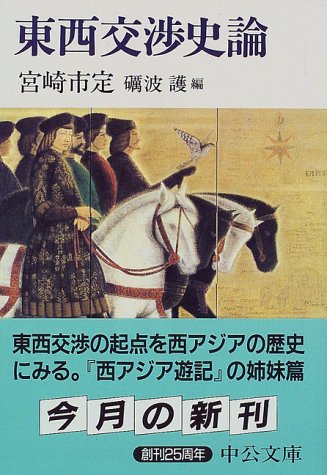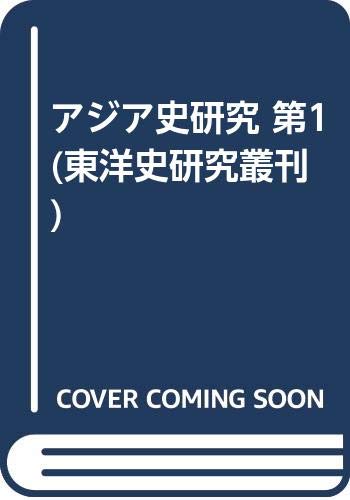34 0 0 0 IR 六朝時代華北の都市
- 著者
- 宮崎 市定
- 出版者
- 東洋史研究会
- 雑誌
- 東洋史研究 (ISSN:03869059)
- 巻号頁・発行日
- vol.20, no.2, 1961-10
19 0 0 0 IR 淸代の胥吏と幕友 : 特に雍正朝を中心として
- 著者
- 宮崎 市定
- 出版者
- 東洋史研究会
- 雑誌
- 東洋史研究 (ISSN:03869059)
- 巻号頁・発行日
- vol.16, no.4, pp.347-374, 1958-03-31
16 0 0 0 IR 雍正時代地方政治の実状--〔シュ〕批諭旨と鹿洲公案
- 著者
- 宮崎 市定
- 出版者
- 東洋史研究会
- 雑誌
- 東洋史研究 (ISSN:03869059)
- 巻号頁・発行日
- vol.18, no.3, 1959-12
It has been known that the Yung-cheng emperor paid special attention to the local administration and adopted some new policies for it. Here the author asks what degree the emperor's intentions were realized. He tries to offer an answer through analysing Lan Ting-yuan (藍鼎元)'s Lu-chou-kung-an (鹿州公案), i.e. the original records of the struggle against the interrupters of his administration when he was Chih-hsien (知縣) at P'u-ning and Chao-yang prefecture, Chao-chou-fu (潮州府), Kuang-tung (廣東) province. Most disturbances were arose from the activities of Shu-li (胥吏), Tu-hao (土豪), Wo-tao (窩盜) and Sung-shih (訟師). Inspite of victoryover them, he was removed from his post because of his chief's unreasonable hatred. However the emperor did not leave such a talented officer tosuffer unjustly. Later he was restored his honor and promoted to Chih-fu (知府). The author concludes from the above story that the emperor's efforts for the local administration had actual results in practice.
10 0 0 0 OA 十字軍の東方に及ぼした影響
- 著者
- 宮崎 市定
- 出版者
- 一般社団法人 日本オリエント学会
- 雑誌
- オリエント (ISSN:00305219)
- 巻号頁・発行日
- vol.7, no.3-4, pp.1-15,138, 1964 (Released:2010-03-12)
Shen-tsung, the 6th Emperor of Sung dynasty, received two ambassadors successively from so-called the Western Regions, one sent by the Sultanate of Seljukides, and the other by the East Roman Empire. These two countries confronted keenly each other and the antagonism was the cause of Crusade. The war devastated the Middle East, resulting in a great loss of population. The Seljukides had to recruit Turkish soldiers from Central Asia to reinforce the army. Thus the pressure of Turkish people toward the east became weaken and gave a chance to the neighbour tribes of Mongolia to rise to a new power. Moreover, the Mongol could arm themselves with abundant iron weapons learning the fabricating technique of the Chinese. Taking advantage of the exhaustion of the Turkish people, the Mongol conquered at last the whole Western Regions.
4 0 0 0 OA 陸賈「新語」の研究
- 著者
- 宮崎 市定
- 出版者
- 京都大學文學部
- 雑誌
- 京都大學文學部研究紀要 = Memoirs of the Faculty of Letters, Kyoto University (ISSN:04529774)
- 巻号頁・発行日
- vol.9, pp.85-136, 1965-03-20
この論文は国立情報学研究所の学術雑誌公開支援事業により電子化されました。
3 0 0 0 OA 張溥とその時代 : 明末における一鄕紳の生涯
- 著者
- 宮崎 市定
- 出版者
- 東洋史研究會
- 雑誌
- 東洋史研究 (ISSN:03869059)
- 巻号頁・発行日
- vol.33, no.3, pp.323-369, 1974-12-31
2 0 0 0 OA 淸代の胥吏と幕友 : 特に雍正朝を中心として
- 著者
- 宮崎 市定
- 出版者
- 東洋史研究会
- 雑誌
- 東洋史研究 (ISSN:03869059)
- 巻号頁・発行日
- vol.16, no.4, pp.347-374, 1958-03-31
1 0 0 0 OA 史記李斯列傳を讀む
- 著者
- 宮崎 市定
- 出版者
- 東洋史研究會
- 雑誌
- 東洋史研究 (ISSN:03869059)
- 巻号頁・発行日
- vol.35, no.4, pp.593-624, 1977-03-31
When Ssu'ma Ch'ien 司馬遷 wrote his Shih-chi, in addition to chronicles which had been passed down since antiquity, he made use of stories from the oral tradition which were told in public by men of the time. This biography appears in the lieh-chuan 列傅 section, but there are many instances in which Ssu-ma Ch'ien selected only the needed part of an established story for his purposes. However, by collecting the fragmentary historical materials from the records of the Han 漢 Dynasty, we can reconstruct the original form of the stories which Ssu-ma Ch'ien disassembled. Ssu-ma Ch'ien made use of two stories in writing the biography of Li Ssu. One was a story in which the main character was the eunuch Chao Kao 趙高who was a descendent of the king of the state of Chao 趙 which had been destroyed by the Ch'in 秦; and he successively took revenge on his enemies, Ch'in Shih-huang 秦始皇, Prime Minister Li Ssu, and General Meng Wu 蒙武. The other story concerns Hsiin-tzu 荀子 and his three disciples, Li Ssu, Han-fei-tzu 韓非子, and Pao-ch'iu-tzu 包丘子. Li Ssu who had a strong craving for power became prime minister of the Ch'in, but later lost his position and was killed. Han-fei-tzu won fame for his writings, but when he went and expressed his views to Ch'in Shih-huang, Li Ssu became jealous of him and had him killed under false pretenses. Pao-ch'iu-tzu became sincerely devoted to scholarship and was poor throughout his entire life; he died peacefully, and his scholarship was passed on to later generations. This is a didactic story which questions which of these three men's different life-styles is the very best. What we should pay attention to is that in these two stories Li Ssu does not play a main role, but only a supporting role. We can see that the weakness of Li Ssu's supporting role as described here was carried over without change into the biography of Li Ssu in the Shih-chi.
1 0 0 0 謎の七支刀 : 五世紀の東アジアと日本
1 0 0 0 IR <論説>支那の鉄について (特集 : 文化交流)
- 著者
- 宮崎 市定
- 出版者
- 史学研究会 (京都大学文学部内)
- 雑誌
- 史林 = THE SHIRIN or the JOURNAL OF HISTORY (ISSN:03869369)
- 巻号頁・発行日
- vol.40, no.6, pp.441-454, 1957-11-01
産業革命以前の世界史において、中国の鉄産は世界的に重要な意義を有した。戦国時代の頃から中国では鉄器の使用が盛んとなり、漢代に入って一つの頂点を形造る。支那の鉄はローマの市場にまで販売された。漢が匈奴に打撃を与えて之を西方に遁走せしめたのは、鉄製武器のおかげであった。然るに三国以後に入って中国国内は鉄の不足を感じた。クビカセ、アシカセのような刑具をも、従来鉄製であったものを木製品で代用した。この時代に成立したと思われる北方民族の言語の中に、中国語の鉄という言葉が直接受容された形迹がない。ところが唐末から宋初にかけて中国に燃料革命とも称すべきものが起り、石炭を燃して高熱を得、製鉄にも石炭を利用して大量生産が可能となった。ここに世界史上、極東の優位が出現し、支那鉄を利用した蒙古の大征服、これに圧されてトルコ族の西遷という事件も起った。南海方面では中国の鉄が重要な貿易品となり、アラビア半島にまで輸出された。In the world history before the industrial revolution, the iron manufacturing in China was of world-wide importance. The ironwares were extensively used since the age of Chan-kuo (戦国時代 or Warring Kingdoms) and culminated in the Han dynasty. Chinese iron was sold as far as Rome. It was accomplished by iron weapons that the Han dynasty could attack and expel the enemy Huns to the west. After the age of the Three Kingdoms (三国時代), there was lack of iron in China; even the implements of pubishment, however, such as cangues and fettets, formerly ironmade, were replaced with wooden ones. In that language of the northern tribes which appeared to be established in this period, there was no evidence that the Chinese word t'ieh (鉄 iron) was directly introduced. The revolution which deserved the name of the feul revolution, however, broke out from the end of T'ang (唐) to the beginning of Sung dynasty; by mass production in the iron manufacturing realized by using coal, the Far East civilization had the advantage over the world, such as the Mongolian conquest by using Chinese iron and the consequent westward movement of Turks. In the South Seas, Chinese iron became one of the most important merchandise and was exported as far as the Arabian Peninsula.
1 0 0 0 IR 中国古代における天と命と天命の思想--孔子から孟子に至る革命思想の発展
- 著者
- 宮崎 市定
- 出版者
- 史学研究会 (京都大学文学部内)
- 雑誌
- 史林 (ISSN:03869369)
- 巻号頁・発行日
- vol.46, no.1, pp.81-104, 1963-01
孔子は天の存在を認めたが、それは不可知な神秘的存在であり、従って天の命も亦、人間からは窺知するを得ない、理知以外の存在であった。彼のいう仁は人の道であり、不可知な天命によって人事の結果がいかに左右されようとも、それによって信念を動揺させてはならないと教えた。これが 「知命」 の意味である。然るに墨子は天を正義の神とし、政治革命の如き大きな政治的変動も、天が主権者の行為の善悪に対して加える賞罰の結果だと説明した。併し実際にはこのような賞罰は必ずしも世上に実行されていない。次に現われた孟子は、政治革命は天の命によって起るが、それは人心の帰趨に従って起るとし、天命と歴史現象とを不可分なものと説明した。そして仁義を行うのは、外部にある利を得んがためではなく、天が人の心に生みつけた性の善なるに従うためであるとした。孔子から孟子への思想的発展は、中間に墨子の存在を考慮しなければ、正しい理解に到達できない。
1 0 0 0 九品官人法の研究 : 科擧前史
1 0 0 0 OA 雍正時代地方政治の實状 : 硃批諭旨と鹿洲公案
- 著者
- 宮崎 市定
- 出版者
- 東洋史研究会
- 雑誌
- 東洋史研究 (ISSN:03869059)
- 巻号頁・発行日
- vol.18, no.3, pp.241-266, 1959-12-20
1 0 0 0 OA 雍正硃批諭旨解題 : その史料的價値
- 著者
- 宮崎 市定
- 出版者
- 東洋史研究会
- 雑誌
- 東洋史研究 (ISSN:03869059)
- 巻号頁・発行日
- vol.15, no.4, pp.365-396, 1957-03-31
1 0 0 0 中国の官吏登用法
- 著者
- 宮崎 市定
- 出版者
- 日本書院
- 雑誌
- 歴史教育 (ISSN:0557837X)
- 巻号頁・発行日
- vol.3, no.9, pp.9-18, 1955-09
1 0 0 0 OA 陸賈「新語」の研究
- 著者
- 宮崎 市定
- 出版者
- 京都大學文學部
- 雑誌
- 京都大學文學部研究紀要 (ISSN:04529774)
- 巻号頁・発行日
- vol.9, pp.85-136, 1965-03-20
この論文は国立情報学研究所の学術雑誌公開支援事業により電子化されました。


